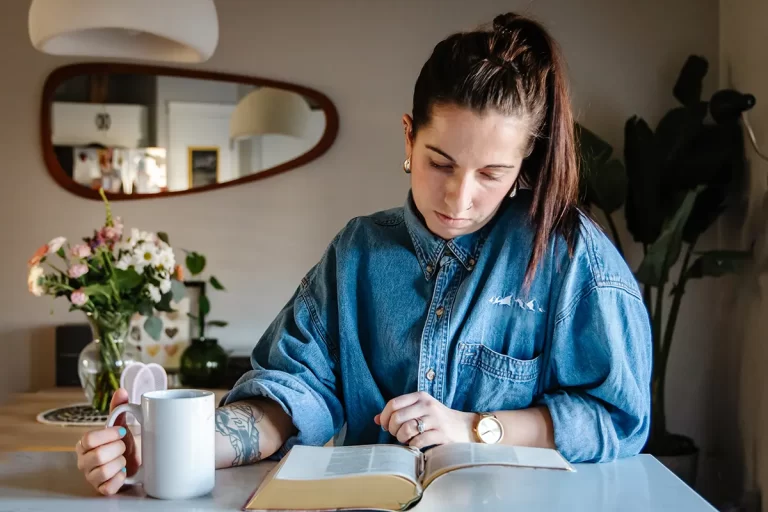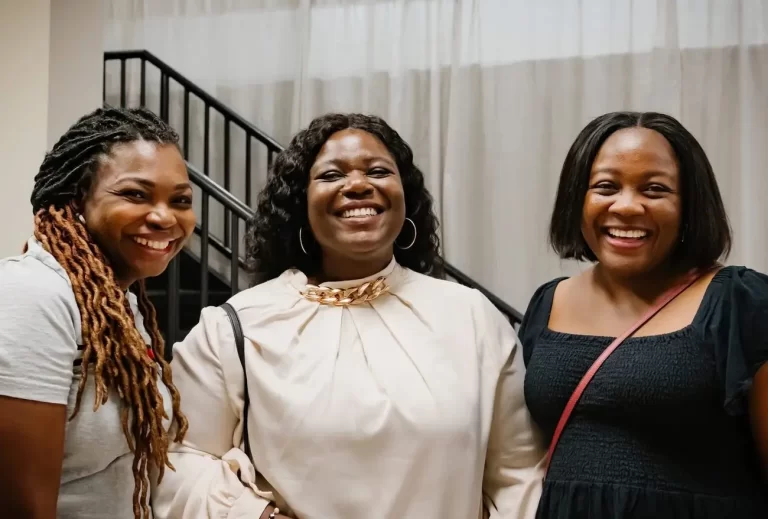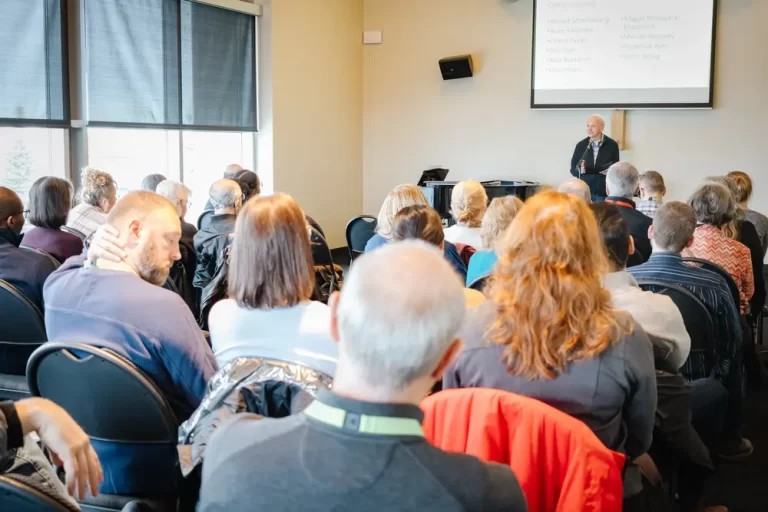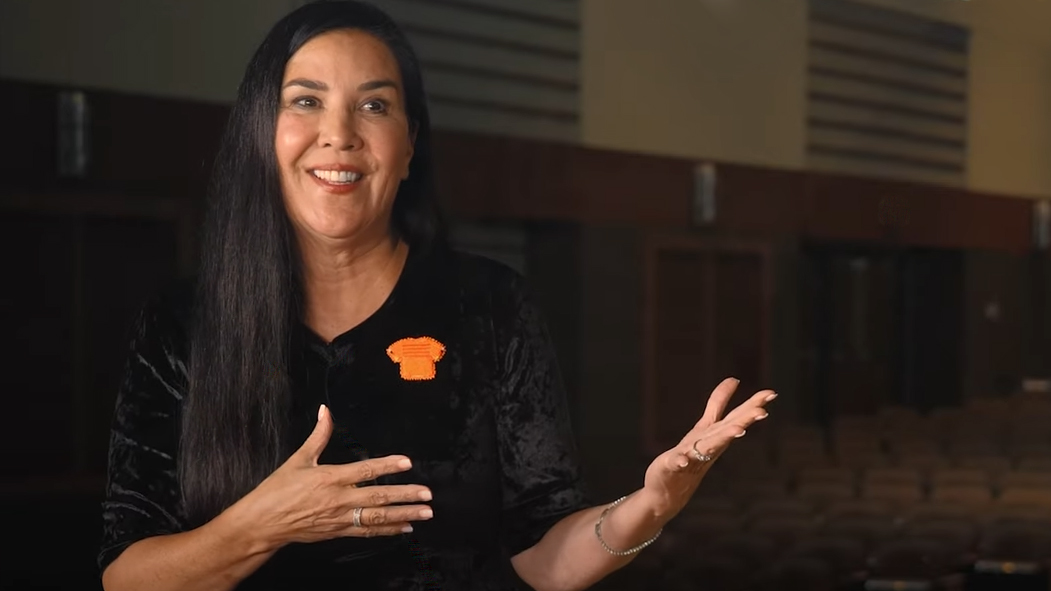
National Day for Truth and Reconciliation:
an Interview with Holly Fortier
As we pause to honour the National Day for Truth and Reconciliation, we were privileged to have a conversation with Holly Fortier, President/Facilitator at Nisto Consulting, as she shares her heart for Indigenous culture, awareness, and reconciliation. Here’s a written transcript of the interview with Rosalind Coben:
FAC: Holly, thank you for being here. I would love if you could just give us a little background on who you are and how you got into starting your business and educating people about indigenous culture.
HF: Yeah, thank you so much for having me. I want to start off by giving a land acknowledgement … It’s always proper protocol whenever we start off a meeting to do a traditional land acknowledgement. I’m a filmmaker, so I did a film for the Arctic Winter Games – it’s going to be shown at every event – and so I did some research around land acknowledgements. I said to some friends, “What does a land acknowledgement mean to you?” And really, what it is is saying Canada’s been here for a few hundred years, but Indigenous people have been here for time immemorial. So where we are, here in this building, is ancestral land for a long time. And so, we are now sitting on the traditional territory of the Blackfoot people, the Tsuut’ina people, and the Stoney Nakoda. And so we honour ancestral land … I love that … I love doing land acknowledgements wherever I travel; I always pull it up – you can type in your location, you can type in “land acknowledgement” and pull it up – and you can do a land acknowledgement, too. And it’s not so much just a ritual of “Oh, we have to do land acknowledgement before we start off a meeting …” It’s just acknowledging that where we are, we think of the people that lived here prior to the city of Calgary, or wherever you are … I love doing that, because we have to remember that the word “Canada” is actually a Mohawk word which means “our home,” and “Kanata” is a Cree word meaning “clean and pure.” So all of Canada is traditional territory for the First People, from coast to coast to coast. We have been here for a long time. We believe that our people were placed here by Creator, and we are the original people. So we love those thoughts, when Canadians go, “Yeah. We acknowledge that you were here.”
I love doing the teachings of us prior to European contact, because Indigenous people were very well established before European contact. We had government, politics, warrior societies, arts, science, technology, medicine, recreation – we were living very well. And as a matter of fact, when Europeans first came over, they couldn’t live in the harshest country in the world without assistance; it was the First Nation people that were like, “Dude, you need to change your shoes, and your clothing, cuz you’re going to get sick. And if you get sick, all of your medicines come from the land. And here’s your food sources.” And Europeans depended on First Nations. That is the original relationship.
And I’m going to say it again … Europeans depended on First Nations. And I feel that relationship has changed. But I really am hopeful, because I feel that we’ve turned a corner, and I feel that we’re taking a different approach in that relationship-building. So I have a business that does Indigenous awareness training. So, I educate industry, government, businesses, first responders, churches on our history. Because really, in order to move forward, you need to know where we come from. I’m also a filmmaker, because I can talk to you right now, but film has a far reach. Film is so important for getting these stories across. I feel very privileged to be able to have these 2 businesses and to be able to share my culture with other groups.
FAC: That’s really cool. And I love the explanation of the land acknowledgment, because I’ve heard it many times, and I believe we have one on our website, actually, but actually I have never delved into why we do that – so thank you for that.
Talking about [knowing] where we came from before we can move forward … Could you give us a little history on how you grew up? I’ve read a little bit about your mom’s story, but could you tell us a bit about that and how that impacted you growing up?
HF: Yeah, thanks for asking that. You know, I’m from Fort McKay First Nation. My community is in northern Alberta. We’re actually Ground Zero of the world’s third-largest oil reserve, so we’re north of Fort MacMurray. We’re Cree and Dene in my community. My mother lived up there when it was remote – before the oilsands activity started. It was so remote; she actually lived on the land, and she didn’t speak a word of English. She was totally loved. It was a beautiful way of living. But because of a government policy, my mom was taken when she was 6 years old. It was Christmas time and the RCMP came to Fort McKay by dog team, on the frozen river, and they actually took her by force – kicking and screaming. My mom was 6 years old; my auntie was 8; the little auntie was 4; and the 3 little girls got taken. Well, nobody from the community had any idea where they went, and the little girls never returned home again. So, the whole community, of course, is full of grief … As parents, if we put ourselves in that situation … You can’t imagine – a knock on the door, somebody taking your children. So my mom spent 13 years at Grouard Indian Residential School. And the stories that come out of residential school are true – of neglect and abuse.
And to add to that horrific story, when my mom turned 18, she got a bus ticket that took her out. They put her on a bus – and she had never left that little compound of the mission – they put her on a bus, and her bus ticket takes her to Edmonton. Well, could you imagine getting off on the streets of Edmonton when you have no one to support you; you have no money; you have no education … There’s predators waiting, of course. And the police were charging them with vagrancy … Vagrancy means you have no job, no home. So, how was she going to get a job or – she doesn’t even know where “home” is. So, my mom says of the girls that came out of Grouard Residential School, about 85% of them committed suicide. And that’s if they didn’t get into prostitution. So the stories of residential schools are horrific, but the after-effects, too, we have to be mindful of.
This is our story. We’re still in the legacy of the impacts of Indian residential schools in Canada. Because the last residential school in Canada closed in 1996. It went on for far too long with our children. I really believe that Canadians take great pride that we’re nice. This story is showing that we’re not so nice. The other thing is, we’ve been really negligent on sharing the story – it’s Canada’s dirty little secret. So when the graves are found – for example, the first one in Kamloops with the 215 children … I actually just did a training, before I came here, and this young woman, her dad went to that school … and there’s still 91 acres to look at. So this is just a small portion. But when Canadians heard about those graves, I think there was a collective grief. Because we can associate – we all know children, whether you’re a mother or a father or an auntie or an older sibling, whatever it may be … we can’t imagine this story. So, whatever the children died of, whatever their cause of death was, they didn’t have the comfort of their mommy and daddy. But those children … that is so sad. What about the children that survived that, that remained? Watching that? They were probably the ones that had to dig those graves. So these stories really impact us.
I think that it’s important for Canadians to understand this, because I have taught Indigenous awareness for many, many years – and I’m not exaggerating when I say this – I’ve taught thousands and thousands of Canadians across our country, and I’ve had thousands and thousands of Canadians say, “I didn’t know that.” So this is really important information, because how can our nation be healthy and whole without this proper relationship and mending and reconciliation and healing?
FAC: I think that is so true, and I mentioned to you before we began that I didn’t hear about residential schools until I was in my 3rd year of university – and it was a 5-minute section of a class. Why do you think it’s something no one wants to talk about? Why do you think that even the church has been avoiding this topic – or the government as a whole? Just Canada – we talk about “God keep our land glorious and free,” and yet actually … we have this secret that we don’t want to talk about.
“We don’t do the Gospel any beauty when we wrap it in a European culture. So it’s really important to read the Scripture and see how … every tribe, every nation, every language, every culture will be around the throne of God.”
HF: Yeah … Racism is an uncomfortable conversation, because it really feels like your goodness is being attacked. Because even a racist will say, “I’m not racist, because I’m not wearing a white hood.” But I feel that a more appropriate word would be to say, “I want to be actively anti-racist.” At the beginning of the pandemic – I remember, Friday the 13th of March, 2020 – I had a whole bunch of speaking engagements booked. I travel for work, and I thought, “OK, I’m home now; I should subscribe to television.” I started watching the news. And I think because we were all concerned and watching the news, and we were all home, we all witnessed the knee on the neck of George Floyd and everything that came out of that – Black Lives Matter, all the conversations. And black and Indigenous people have always stood in solidarity because of colonial structures. So what happened with that was I became a student. Even though I do this work, I thought, “I’m going to do what I teach everyone else to do: learn.” And so I became a student. I started watching every show that I could, listening to audio books, podcasts, and I took notes. And I thought, “You know, I really want to learn and grow from this conversation.”
And one thing that was really apparent to me … Whether you’re – you know, unless you’re black or brown, you have experiences that are different. For example, for me, I get followed around in a store because I look suspect because of the way I appear, because of my ethnicity. Or, if I try to flag over a taxicab, and they see a few of us, we all look the same; they don’t pick us up. Or I go into a restaurant and there’s lots of room, and our group of people, we want to eat; they don’t give us service. And this happens. And even if we have an Indigenous-sounding last name, we doctor up the name so we can get a hotel reservation or a car rental or a job opportunity. There’s even these things called “micro-aggressions,” which are small acts of racism. I asked some friends, “What are some micro-aggressions?” and we all agree on this … When people say to me, “You don’t look like, act like, talk like, live like, whatever like an Indigenous woman” … I mean, it may seem like you’re complimenting me, but it’s really dissing me and my people. I just really want to take this time to become a student – and I would invite all Canadians to do that. Let’s lean in on the conversations of how we can do better – and especially the church.
How Can the Church be Part of Reconciliation?
FAC: I would love to dive into that. I mean, I believe that the church is called into the ministry of reconciliation – like in 2 Corinthians. So, what are the ways that the church can actively be in the ministry of reconciliation?
HF: I love that … This just makes my heart explode that you asked that! Because I’ve been a Christian since 1982, so … Math is hard – like, for 127 years!
FAC: Sounds right to me!
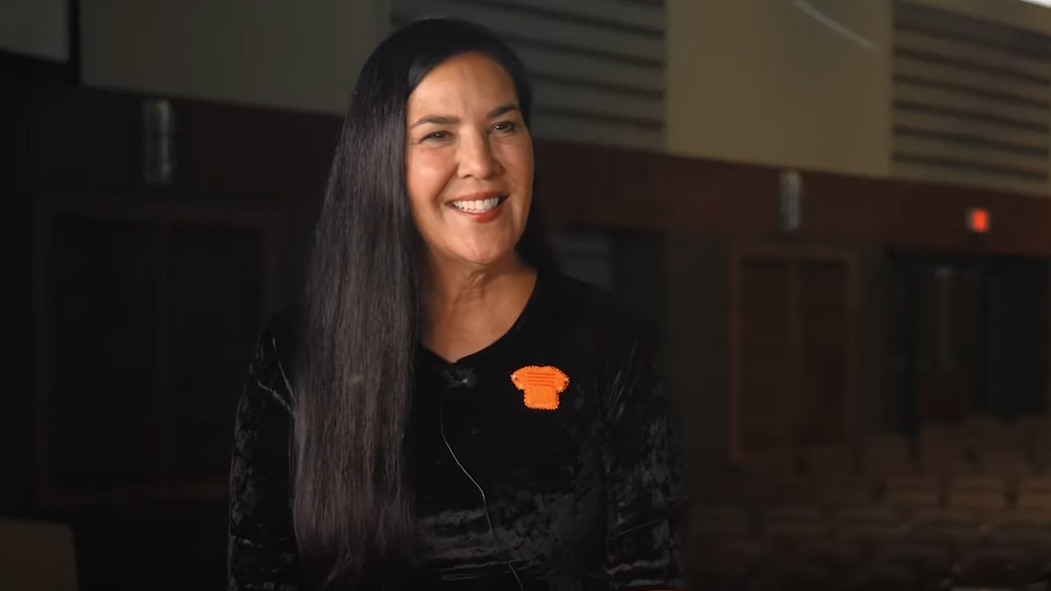
HF: I’ve been a Christian for a long time, and it’s just now that somebody like yourself is asking me this. So I’m greatly honoured and thankful to you. And I think that, you know, when I first became a Christian, the church was saying to me, “Either or. You’re going to be First Nation or you’re going to be a Christian.” Like it was opposing. And I thought, “I don’t have to pick a side.” When I read the Scriptures, I knew that I could be First Nation and a Christian. And this is what’s happened … The church has done so much harm. The church has been the oppressor, starting in residential school, and despite 500 years of mission work – missiologists will agree on this – only 2-5% of Indigenous people are Christians. Because the church has been the oppressor. And when I became a Christian, people were saying to me, “You have to get rid of that.” It was almost like it was witchcraft, it was occultic, it was dark – and that message has been the foundation of that.
But it’s ethno-centric, which means that you have the belief or the notion that your culture is superior. We don’t do the Gospel any beauty when we wrap it in a European culture. So it’s really important to read the Scripture and see how every nation … Malachi 1:11 [talks about how] from the sun rising to the sun setting, all nations are celebrated. Revelation, the same thing – the throne of God, every tribe, every nation, every language, every culture will be around the throne of God. So we need to do better for First Nation people. When I became a Christian, people were saying to me, “We need to cast some demons out of you” … or things like “You have generational curses” … or “You have to get rid of anything witchcraft-y in your home.” And I was like, “What do I have in my home? I have art …” It’s just a way that the church has done so much damage, and I think it’s time that we listen.
You know, when we think of Jesus, anytime anybody was sick, He’s like, “What can I do for you?” Why was Jesus asking that? He knew that! But He was listening. And I think that is a good example for us; in relationship building, listening is key. We really need to listen and understand.
I think that reconciliation is a buzzword now. A few years ago there were 3 commissioners that went across Canada and they interviewed 7,000 Indian residential school survivors in 300 communities. Now, the reason we call them survivors is because 50% of the children that were taken from their homes never made it back home. As a matter of fact, if you survived residential school, 90% of residential school survivors ended up with a mental illness. So, this is depression, anxiety, addictions, to more severe forms.
So, they interviewed 7,000 survivors. Can you imagine hearing stories start to finish? They compiled a report. The final report of the Truth and Reconciliation Commission included 94 calls to action. And there’s some calls for the church. When Senator Murray Sinclair submitted the report, he said, “Here, Canada – ” – this is after hearing 7,000 stories – “Here, Canada; here’s a report. Now let’s be friends.”
I echo that sentiment … But since then, people are like, “Well, how do we do this?”
For one thing, I want to say – if we could all say, all of us in Canada, “Reconciliation starts with me.” … And the other thing is, the first part of that is “Truth.“ So let’s learn the truth. So how we do that, we have these kind of conversations … Pick up books – if there’s something that interests you, just pick up, you know, all the way from fiction, non-fiction, children’s books … Do the same with audio books, podcasts … Listen to our music … Buy our art. Here’s the rule with art, though … Buy from inspired Indigenous, not Indigenous-inspired; therefore, you’re appreciating the culture, not appropriating the culture. Indigenize your spaces. Put land acknowledgements even on your email signature. Have Indigenous coffee cups, or have art in your home – it’s so Canadian! The thing that I love doing is going to museums and cultural sites – not just to learn about our history, but our collective history. Take courses at your local parks and recreation. And learn the true history, but don’t focus on it. Whatever we focus on gets bigger. So let’s focus on successes.
Because here’s the thing … Despite everything that we have gone through – I carry a lot of stories, of my mom’s experiences at the residential school, from the trauma that I have experienced as far as racism and other things that have impacted me as an Indigenous woman. We are a vulnerable demographic, as we know from the Missing and Murdered Indigenous Women and Girls inquiry. And so, there’s all of that. But let’s focus on the successes, because everything that we have gone through, despite it all, we’re still kind, we’re still generous, we’re still full of humour, and we’re highly successful. So look at success in the arts, in science, athletics, business, politics – and I always try to bring these things up and share them on my family group chat, because I want this to be the norm. And my 8-year-old granddaughter said to me the other day, “You know why I love being Indigenous? Because all my Indigenous family is really successful, they’re doing really cool things!” And I was like, “That’s the norm.”
FAC: That’s cool. One of the things our Lead Pastor says here is that we want to be known more for what we’re for than for what we’re against.
HF: Right.
FAC: That sort of resonates with me, the same idea …
HF: Oh, that’s good.
FAC: … Why talk about our failures when we can focus on these things that are successful?
HF: Yeah.
FAC: I would love to know – I meant to ask this earlier – but can you talk a bit about your mom? She had this passion for sharing Indigenous culture with you. And, I imagine that must have been hard, because she didn’t grow up around a lot of it. How did she go about doing that? And what was that like growing up in that home?
HF: You know, it’s kind of like the cliff-hanger of my mom’s story. People are like, “OK, she got dropped off on the streets of Edmonton … Then, like, what happened?” And we were so fortunate, because my dad was a geologist in the Fort MacMurray Athabasca oilsands region. And so he did all the early exploration work of the surveying. So he would hire First Nation men – because of course, who knows the land better than us, right? And those were all my mom’s cousins. And they told him about the 3 little girls that got stolen. And he heard they were in Edmonton, so whenever he went to the city of Edmonton, he was like, “I want to go look for her.” And we don’t know the details of how, when, what, why – but he found her.
FAC: Wow!
HF: Long story short, they had a great love story. He soaked us in the culture. And my mom ended up having an incredible career. Her story of after residential school, the people that she impacted, and became a role model, and mentored, and gave opportunities to … One thing is she saw a whole bunch of kids in Child Welfare – not just from the legacy of residential school, but also after residential schools started closing. From the 60s to the 80s, it was coined “the 60s scoop,” where they were adopting children out, and then the high rates of children in Child Welfare. And so, they’re still taking our children. And my mom saw all that, so she was like, “I’m going to open a home that is for Indigenous children, that is run by Indigenous people.” And it was the first in Canada.
And we had all these kids come to us, ages 11 to 18, and my mom would say, “I know you have a therapist, but we’re going to bring in elders, traditionalists, to come and talk to you.” And we had drum lessons, dance lessons, kids were always beading and sewing … They’d make their regalia so they could pow-wow all weekend. They went to a school in Calgary called Plains Indian Cultural Survival School. And we saw over 2,000 kids go through the program throughout the years, and transform. Culture was healing. And I said to my mom, “How did you know that would work?” And she said, “I just wanted to do the opposite of Indian residential school – rather than take the culture away, to put the culture back in.”
So, my mom was very successful as an entrepreneur, and she really kind of pushed me … “This is our history. You don’t really have a chance to do anything less than me. Now you need to go further.” She always was giving me opportunities. Anything that happened good in my life, she’d be the first person that I called, just to let her know what was going on. It was really beautiful the way that … she just really is my mentor, my role model, and so inspirational. I actually did a documentary on her residential school story; if you want to look on YouTube, it’s called “A Mother’s Voice.” You can copy it and share it with your friends, family, social media – especially for September 30 for National Day of Truth and Reconciliation – just to put humanity to the story. And it’s my mom! And it’s such a beautiful film of her being really vulnerable and transparent, and sharing that. It was a great honour to be able to do that. I’m just really thankful my parents raised us traditional and with culture, and helped us to be really proud of who we are.
FAC: That is very, very cool. I love her approach of doing the opposite of what had happened to her.
HF: Yeah.
FAC: Just a couple more questions … I had somebody on Instagram message us and ask “What cultural or traditional or spiritual things from Indigenous culture do you apply to your Christian faith?“ Are there things, or how does that work? You had mentioned some people treated you like you were doing witchcraft or something, which is probably a pretty common misconception. How do you reconcile those things? And I hope that isn’t an insensitive question, but if you have any answers there …
HF: It’s very rare that you meet an Indigenous person who’s an atheist. We have a very strong connection to Creator because of our connection to creation. Actually, in all of our languages we have a word for God. In Cree, the word is ‘Kitchimanito,’ which means ‘the Great Spirit.’ And so, when people approach an Indigenous person and we talk about God, we go, “Yeah, we know! We know!” That’s our life – we have that relationship with God. And so, this is really important to understand that we already have that view, that appreciation. We have opening prayers at every meeting, every celebration. Our relationship with our Creator is really a big thing in our life.
When we look at the Bible … In Amos it talks about (this is paraphrased, of course) You want – what does God want? He wants oceans of justice, rivers of mercy … That’s all I want. That’s Holly’s paraphrased version. J But I’m like, OK, so God wants justice and mercy. So if we’re looking at the issues with anything but compassion, then we need to align ourselves with Scripture. You know, the Bible always talks about the hurting. And it talks about if one part of the body is broken, the whole body is affected. So if there’s people that are hurting in Canada, and that have gone through something, let’s deal gently with love and compassion. And I think that different approach is our responsibility as Christians, because we need to make a shift as a church. Come on, church – we can do better.
FAC: Yeah, thank you for answering that. I just was struck by when you said we re-framed, or tried to re-frame religion through European eyes; and it never really occurred to me, but God is not just one culture … So I think that’s really interesting to acknowledge that Europeans came in and assumed we – I’m speaking as someone who has Cree background but also a lot of European background – we assumed First Nation or Indigenous people didn’t know. But actually God was transcending all of that, and it’s neat to acknowledge that.
HF: Yeah.
FAC: Just a final question. Do you have any resources or things that – practical steps or places people can go to further the reconciliation journey?
HF: I think, you know … I talked about what we can do in reconciliation. Let’s stop saying “What can I do for Indigenous people?” and let’s start saying “What can I learn from Indigenous people?” Because we aren’t a problem to be solved. And we have so much to offer … Our culture is so beautiful. Our people are so beautiful. And let’s have a different approach. Let’s shift the lens.
FAC: I love that. Thank you very much, Holly; I really appreciate you taking the time to allow us to listen and learn from you. It’s been a privilege to learn from you today, so thank you.
HF: I feel deeply honoured that you invited me, and thank you. For us as a church I think that the real thing that we can start doing more is praying for Shalom. Shalom means peace, but it also means wholeness and wellness … And that’s really my hope – that we can just have, moving forward, we can do it differently and respond the way that the Gospels tell us to.
Watch our interview with Holly below, and be further inspired by watching (and sharing) her beautiful documentary, ”A Mother‘s Voice”.
You may also be interested in …
- Watch “Building Bridges: Exploring Reconciliation with Indigenous Communities” interview with Kevin John, premiered June 23, 2021:
- Resource List for Indigenous Communities (PDF download)
- “Expanded Wordlview – A Journey Toward Radical Love” blog post published December 4, 2020
- “Over the Fence: 5 Ways to Connect & Share” blog post published October 18, 2019

